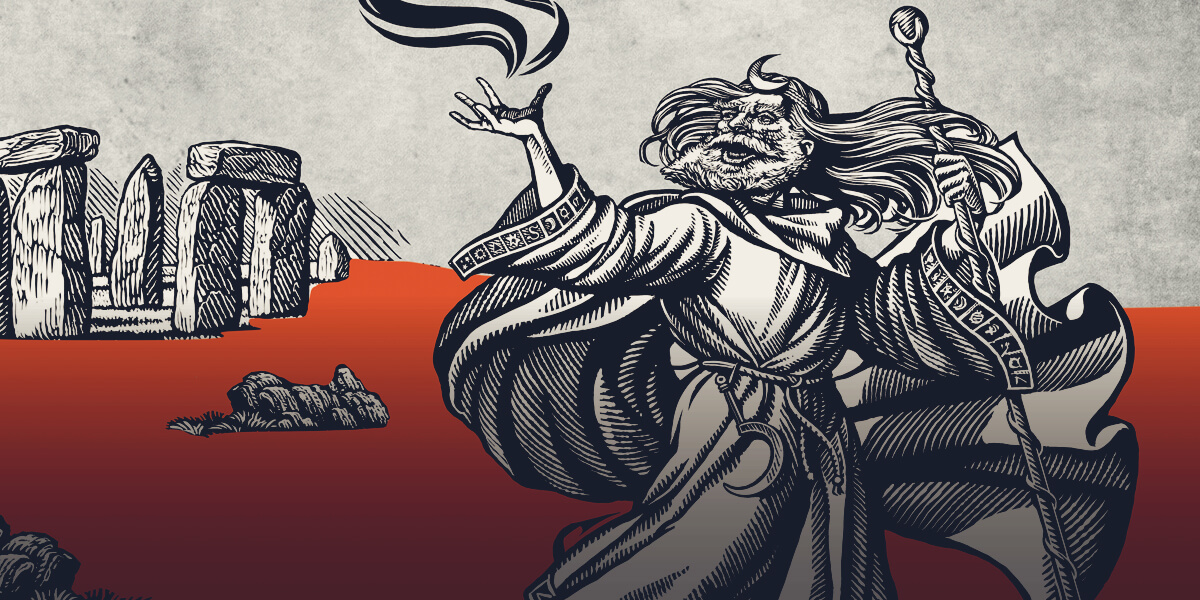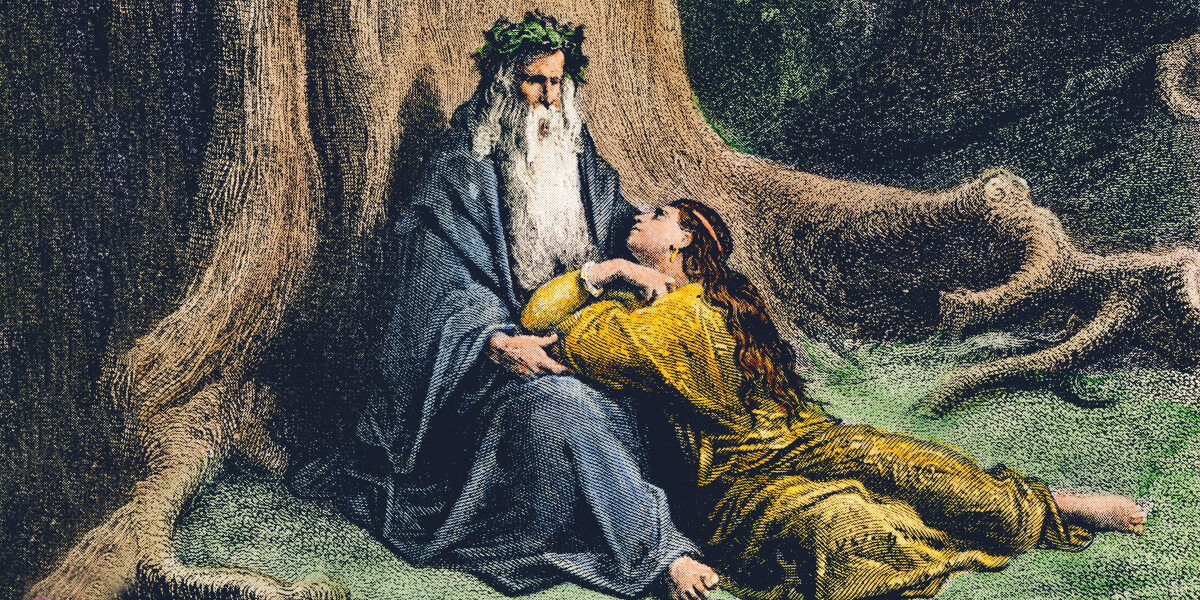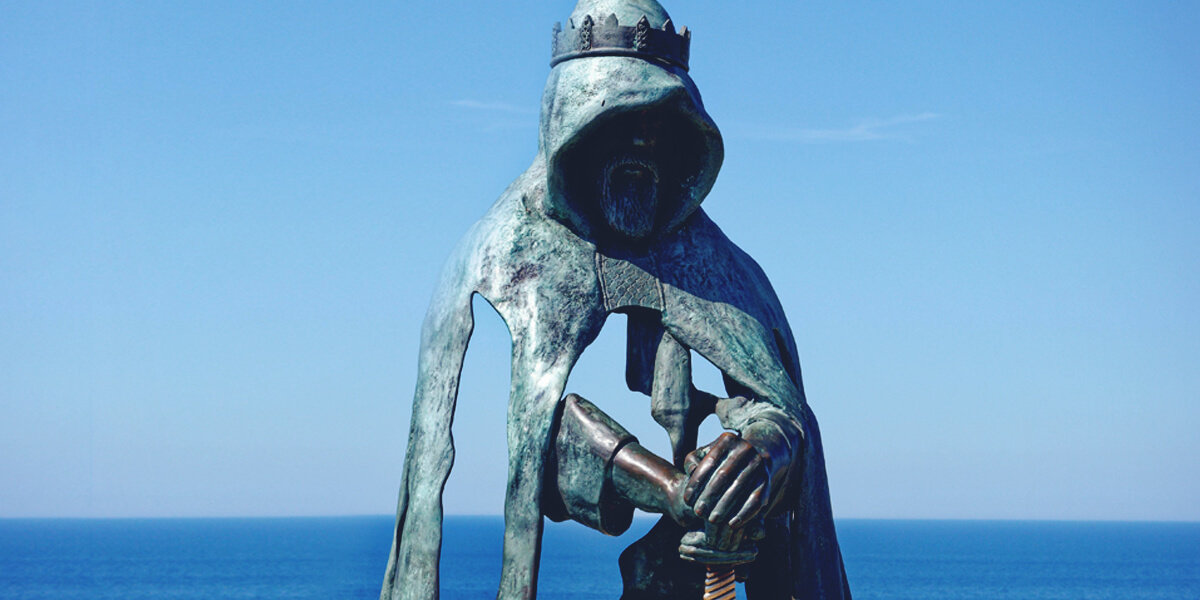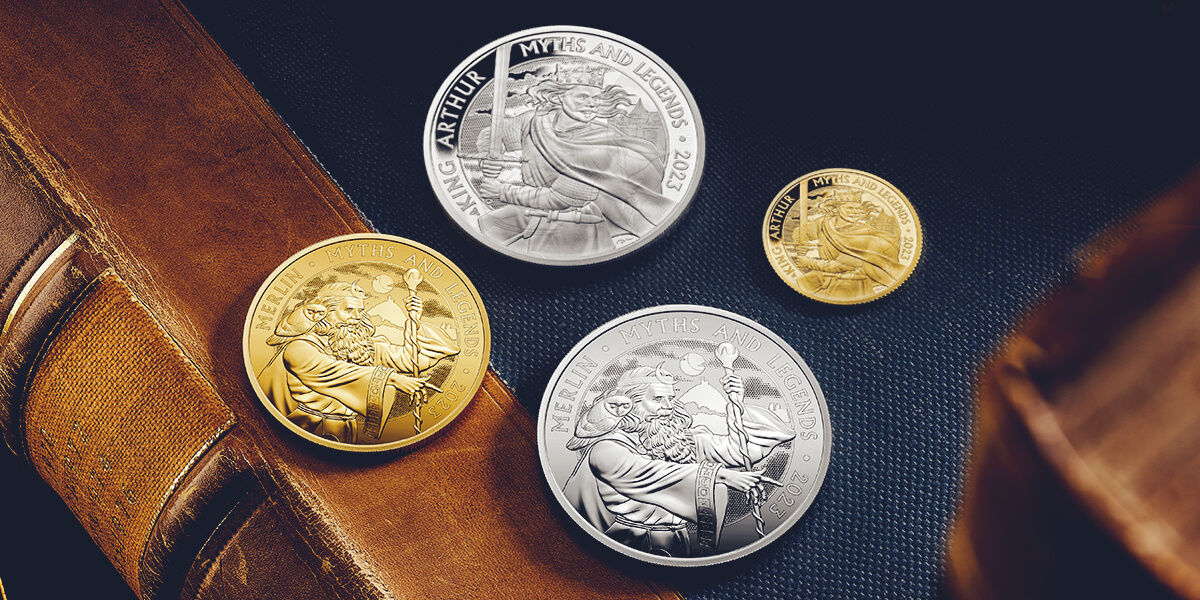First appearing in Geoffrey of Monmouth’s Historia Regum Britanniae or The History of the Kings of Britain – a twelfth-century, pseudo-historical account of British history – Merlin has shifted through time to become one of the most popular characters in British mythology. Like most legends, however, the perception of the wizard has evolved in tandem with the narrative itself, which has undergone various reinterpretations and retellings over the centuries.

Deity, Roman or Welsh?
Commonly associated with Arthur and the Knights of the Round Table by modern audiences, Merlin’s origins are as mysterious as the character himself, but the inspiration for the elusive figure likely stems from a blend of mythical characters and legends. His origins are often tied to Welsh folklore, specifically the bard and wild man Myrddin Wyllt, who is said to have succumbed to madness following a battle and retreated to the Caledonian forest, where he gained the gift of foresight. Another figure serving as inspiration for Merlin’s character is Ambrosius Aurelianus, one of the last remaining Romans in Britain who was also a warrior-prophet.
Carmarthen, the county town of Carmarthenshire in Wales, was once home to a cult associated with a local pagan god said to have been the basis for Merlin’s character. The etymology of the town itself is closely linked to the wizard, based on the Welsh ‘Caer Myrddin’, which many claim means Merlin’s fort or castle.

Adviser to a Legendary King
Portrayed as the son of an incubus with the ability to shape-shift and prophesise the future in Historia Regum Britanniae, Merlin played a key role in the conception of Arthur using magical trickery. However, after Arthur’s birth, Merlin disappears from the remainder of the narrative.
The modern perception of Merlin and the popularity of the character was kindled within the Romance tradition. This is where the wizard became closely associated with King Arthur, and plays a much more prominent role in the legend. From the initial works of Chrétien de Troyes to Thomas Malory’s Le Morte d’Arthur, we see Merlin evolve from a mysterious sorcerer and prophet from the early chronicles to King Arthur’s trusted adviser. Malory’s work also associated Merlin with seminal events in the legend, notably the removal of the sword in the stone, an achievement that is arranged with the wizard’s help and one that establishes Arthur as the rightful king of Britain.

Shape-Shifting Through Time
Like all supernatural, fantastical beings, Merlin is still treated with great fascination. In the early chronicles of Arthurian literature, he was shrouded in mystery, seen as an elusive shape-shifter, but has become a prominent and popular character in the modern era, particularly within American literature. He has featured in myriad reinterpretations through literature, film and television, and provided inspiration for many popular, fictitious characters, from Gandalf to Professor Albus Dumbledore.
True Legends Never Die
The story of Merlin’s demise varies depending on the strand or retelling of the narrative, but it is widely agreed he meets his end after being seduced by a young woman called Nimue, who steals his powers and entraps him in a cave or oak tree depending on the version of the myth. Many still tell Merlin’s tale and the wise and magical sorcerer continues to captivate audiences all over the world, and will no doubt do so for centuries to come.
Myths and Legends Coin Range





